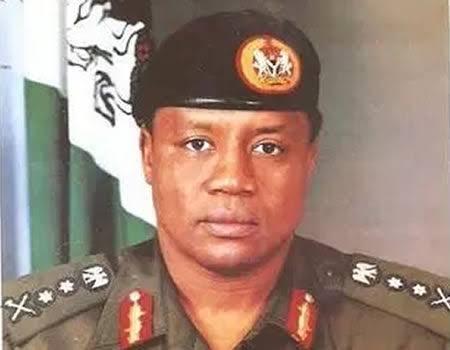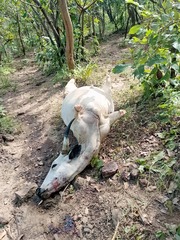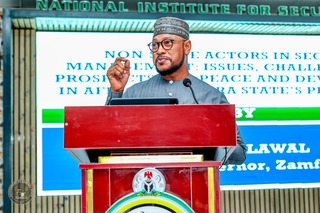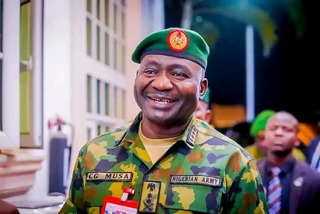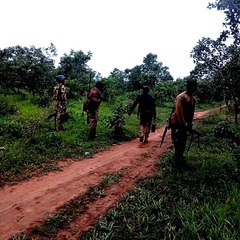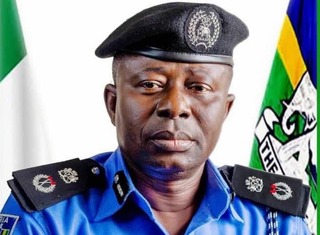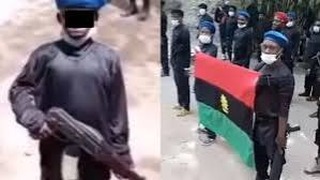An Open Letter to General Ibrahim Babangida: Abacha’s Legacy Shines Where Yours Faltered
Dear General Babangida,
Your memoir, *A Journey in Service*, launched yesterday, February 20, 2025, in Abuja, has stirred the pot once more. Through your book reviewer, former Vice President Yemi Osinbajo, you admitted that Chief MKO Abiola won the June 12, 1993, election, a truth long known to Nigerians. Yet, you’ve shifted the blame to General Sani Abacha, claiming he was your “biggest headache” and the mastermind behind the annulment. You wrote, “Without question, one of my biggest headaches at this time was Sani Abacha. I knew that Abacha was ambivalent about a return to civil rule,” and alleged he led forces that annulled the election without your authority while you were in Katsina. This narrative, casting Abacha as the villain and yourself as a sidelined bystander, is a convenient rewrite of history. The facts tell a different story: your eight years in power gutted Nigeria, while Abacha, for all his complexities, rebuilt it into a stronger, prouder nation. Let’s set the record straight.
In your book, you claim ignorance of the annulment, stating that the press secretary to your second-in-command, Admiral Augustus Aikhomu, announced it without your permission. You wrote, “To suddenly have an announcement made without my authority was, to put it mildly, alarming. I remember saying: ‘These nefarious “inside” forces opposed to the elections have outflanked me!’ I would later find out that the ‘forces’ led by General Sani Abacha annulled the elections.” This is a flimsy dodge. You were the Commander-in-Chief, sir, not a bystander. The June 12 election, which you now concede was “credible, free, and fair,” was annulled under your watch on June 24, 1993, via a national broadcast you authorized. If Abacha outmaneuvered you, why appoint him Chief of Defence Staff? Why leave him as the Interim National Government’s (ING) military linchpin when you “stepped aside”? Your claim that he became a “dominant force in a factionalised military” only underscores your failure to command loyalty or control your own regime.
You paint Abacha as a schemer, alleging he “attempted to violently remove me from power through a coup” by spreading a narrative that I was “the problem.” Yet, history shows he saved you during the 1990 Orkar coup, rallying loyal troops when your life hung in the balance. You’ve admitted this before, praising him on your 74th birthday in 2015 for coming to your aid. Where’s the loyalty Abacha showed you? We might never hear his side of the story, but history never lies; it records his actions, not your recastings. Now, you label him a headache to absolve yourself. The contradiction is glaring: if Abacha was so untrustworthy, why entrust him with Nigeria’s defense? Your memoir’s finger-pointing reeks of hindsight crafted to dodge accountability.
Let’s talk about your legacy. June 12 wasn’t Abacha’s doing; it was yours. You annulled Nigeria’s fairest election, sparking unrest and shattering democratic hopes. Your Interim Government under Ernest Shonekan was a puppet show, collapsing in three months because you designed it to fail. Economically, your IMF-backed Structural Adjustment Program tanked the naira from 0.89 to 17 per dollar by 1993, unleashed inflation, and impoverished millions, while you siphoned off $12 billion, dwarfing any “Abacha loot.” Politically, you banned real parties, executed rivals like Mamman Vatsa on shaky grounds, and stoked religious strife with the OIC move. Nigeria bled under your watch; Abacha merely inherited the wreckage.
Abacha took power in 1993 not to ruin Nigeria, but to steady it. Economically, he grew reserves from $494 million to $9.6 billion and cut debt from $36 billion to $27 billion, all with oil at $15 a barrel. Inflation fell from 54% to 8.5%. He built roads in Lagos, Kano, and beyond, delivering what you only promised. You call him “ambivalent” about civilian rule, yet he began a transition framework in 1995, cut short by his death in 1998, paving the way for 1999’s democracy. Your memoir begrudges his resolve; I see a leader who acted where you wavered.
You scorn his defiance, but Abacha’s stand against globalists was Nigeria’s gain. After the 1995 Saro-Wiwa execution, a domestic call you’d have ducked, sanctions hit. He didn’t bend. He allied with Libya’s Gaddafi, hosting him in Kano in 1997 to cheers of thousands, and led ECOWAS to stabilize West Africa. You courted the West; Abacha defied them, preserving our sovereignty.
Your book admits regret, saying, “June 12 happened under my watch; mistakes, oversights, and missteps happened in quick succession,” and “If I have to do it all over again, I’d do it differently.” Too late, sir. You claim Abacha “wanted that job at all cost,” a line from a 2018 interview you now amplify. Yet, if he was your headache, you empowered him. History favors Abacha not for flawlessness; his rule was tough, but for results: stability, growth, and pride. You left Nigeria broken; he left it standing tall. Your memoir can’t rewrite that.
Sincerely,
Sameer Lukman
February 21, 2025

